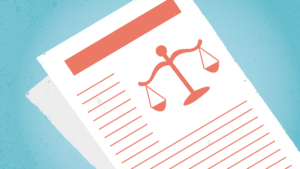Be Careful What You Put in Headlines
Press releases must have strong headlines if they are going to be effective. The problem comes when the strong headline has a double meaning or might be considered offensive by some. For those reasons, you want your headline to be strong but without problems. If you do that, you are more likely to get attention for your company. Here are things to avoid.
Headlines are important to news stories and press releases. The right headline will grab the attention of editors and entice them to call you to do a story on you. That story could lead to new awareness of your product or service. You might get additional revenues from the story. However, the wrong headline might ruin your chances for a story. In some cases, the wrong headline could give a false impression of you. Let this article show you how to avoid bad headlines.
-
Offensive Language – Many years ago, the Howard County Times had a headline that read “Jews Elected President of Christian Organization.” The article was about Frank Jews was elected to a local Christian charity. However, the headline sounded like the Christian charity was picking Jewish people to run it, which might have been offensive to Christians. In this case, the paper should have included the first name. For your press releases or articles, you have step back and think, “Could someone be offended by this headline?”. If the answer is yes, you might want to reword your headline.
- Misleading – Along with offensive language, the next most common mistake is a headline that misleads the public. Health products do this all the time when they promise that by drinking this product or eating this supplement, it would cure whatever you have. The Food and Drug Administration has regulations against misleading promises, such as “Health Product Cures Diabetes.” It can contribute to a better lifestyle or treat the symptoms, but it can’t cure the disease or even reverse it, which I have heard people tout. Avoid words that make promises that can’t be verified.
- Misspelled Words or Wrong Words – If you misspell a word or use the wrong word, it can hurt your story because it would change the meaning of the article or press release. In some cases, it could be funny, as in this one, “Amphibious Pitcher Makes Debut.” The way the headline is written suggests a man who is part toad is pitching. The writer wanted Ambidextrous, meaning he can pitch from either hand. You should always make sure you have words spelled correctly and are the right ones.
- Double Meanings – Some words make great jokes because they naturally have double entendres. Others become a sentence with a double meaning by their placement in a headline. Reading your headlines out loud will help you notice these mistakes. “Students Cook and Serve Grandparents.” This could mean that the students are cooking in a kitchen and bring food to their grandparents or it could mean that the students killed the grandparents, cooked them and served them. Other headlines might have sexual meanings in them. Be careful of these double meaning headlines.
- Stating the Obvious – You want to avoid stating the obvious in a headline. “Population Expected to Double by 2040; Babies to Blame.” I wonder how else the population would double if it weren’t for babies. Cloning, perhaps? “Bugs Flying Around With Wings Are Flying Bugs.” I want to smack my head on that one. Your headline should be interesting and challenging to the reader. Then, they will want to read more.
- Funny Headlines – Some headlines are just funny. Even though humor is a good tool to attract attention, you don’t want your headlines to be too off-the-wall. “Cows Lose Their Jobs as Milk Prices Drop.” I guess we will be seeing cows lining up for unemployment checks soon. If you have a reason to use humor, do it, but you want to put it in context.
When writing your headline, make sure you know exactly how the reader will take it. You want to use strong language that doesn’t mislead, offend, state the obvious, have a double meaning or is too funny.
THE NEXT STEP:
You can avoid these headline mistakes by relying on a service that understands how to make a strong press release or write a strong article. However, it must reach those journalists who might want to use your story. Otherwise your efforts in writing it well would be pointless. In order to help you target the right journalists for your situation, you should take a look at Faselis Growth and Faselis Professional solutions packets for distributing your press releases. Consequently, you will have the latest contact information of the journalist.
by Louise Harris








